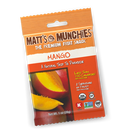

In order to create halal gelatin, it must be prepared according to Islamic laws – a precise process.Ĭustom Collagen is the answer to the questionable nature of gelatin. Many manufacturers combine animal bones from both halal and haram animals, making it non-permissible for Muslims to eat or use. Gelatin is made from the proteins in the bones of animals. More often than not, foods and products containing gelatin are considered mushbooh because most gelatin manufacturers don’t disclose the origin of their ingredients. These same guidelines apply to the use of collagen. However, if the gelatin’s source is certified halal, then the gelatin itself is halal and can be enjoyed by all. Most gelatin products are considered haram, especially if their source is pork or an animal that was not processed according to Islamic law. If the status of a food item or consumer product is questionable or unable to be determined, it’s then classified as “Mushbooh,” which Islamic law suggests Muslims should avoid. If a product is not certified halal, it is considered haram and therefore forbidden to be used. In opposition to this, there is “haram,” which means unlawful or forbidden. That means, in addition to food, makeup, health and wellness products, all medicines, food ingredients and food contact materials need to be certified as halal - hence the need for halal gelatin. In the Muslim community, this term can relate to every aspect of their daily lives, including the use of any everyday products. It is primarily considered to be the dietary guidelines outlined by the Quran and is an Islamic law practiced by Muslims worldwide. In Arabic, the word “Halal” means lawful or permissible. Continue reading to find out how we at Custom Collagen ensure our halal and kosher gelatin and collagen meet the dietary restrictions of all communities. If you want to be more inclusive with your offerings to address the needs of those who need halal or kosher foods and daily living items, Custom Collagen is here to help. If your products are not made with halal gelatin and collagen, or kosher gelatin and collagen, you’re excluding many potential customers who may benefit from your products. When it comes to gelatin and collagen, not all communities can use the products you may create. Both are used to make plastic surgery fillers, glue, strings for musical instruments, wound dressings and so much more. Along with collagen, it also is used in a vast number of medical and health and wellness products. Gelatin is used to produce a number of non-food items, such as adhesives, photography film, cosmetics and ballistic gelatin.
#Kosher fish gelatin powder free
If you are not a follower of either faith and simply want gelatin that is free of pig parts, you can definitely enjoy both types of gelatin products.The Many Uses of Unflavored Gelatin and Collagen However, I am sure that religious leaders of both faiths would recommend sticking to either kosher or halal foods as per religious rules and customs. And the way the animals are butchered are similar. For example, both kosher and halal gelatin is devoid of pig parts. They are similar in the sense that some of the regulations are the same. Halal gelatin is gelatin prepared according to Islamic regulations. Kosher gelatin is gelatin prepared according to Jewish regulations. That's why shoppers of kosher products must make sure that the label of a product says kosher. There is someone overseeing every step of the process, from the first to the last, to make sure that everything is done properly.

These certifications are not just given out. There are committees that analyze and determine whether a product is prepared completely according to kosher regulations. What are the Different Types of Kosher Food?Ĭertification is really very important for kosher products.


 0 kommentar(er)
0 kommentar(er)
